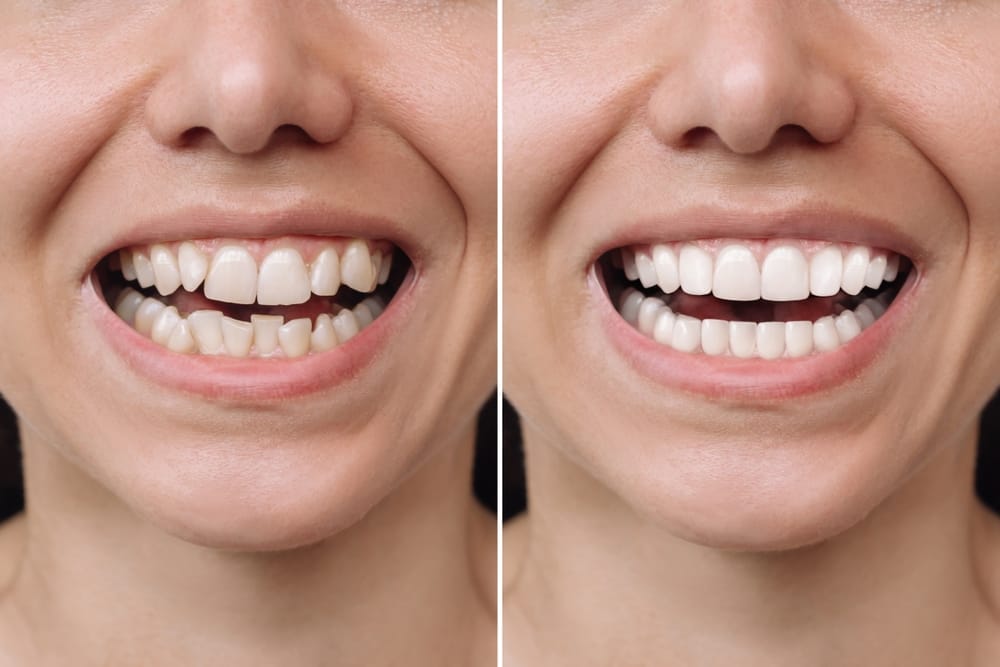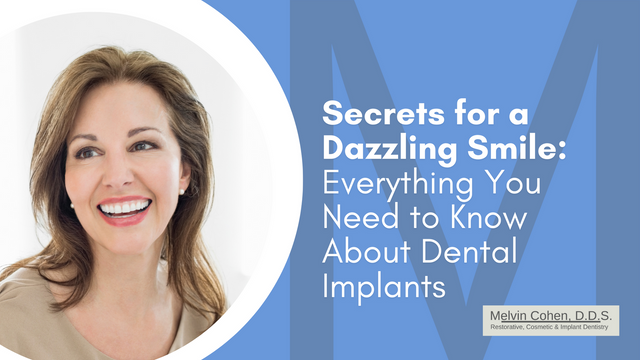
Oral care involves maintaining the health of the mouth, teeth, and gums. It is a crucial part of personal hygiene.
Proper oral care means adopting daily routines that prevent dental issues like tooth decay, gum disease, and bad breath. Brushing teeth at least twice daily, flossing, and regular dental checkups are central to effective oral care. Eating a balanced diet and avoiding sugary snacks contribute to stronger, healthier teeth and gums.
This form of self-care promotes a bright smile and supports overall well-being. Neglecting oral hygiene can lead to complications far beyond the mouth, including heart disease and diabetes. By prioritizing oral care, individuals can ensure a lifetime of good health and confidence in their smile.
Credit: medium.com
The Essence Of Oral Care
Maintaining healthy teeth and gums is a vital part of our overall health. Often overlooked, oral care is not just about having a pleasing smile or avoiding lousy breath—it’s at the core of our wellbeing-. Good oral hygiene practices can prevent various dental issues and contribute to the health of our entire body.
Why Healthy Teeth Matter
Teeth are essential for chewing and digesting food, but their importance goes beyond aiding in nutrition. Having strong, healthy teeth helps preserve the structure of our face and jaw. This affects how we look and how we communicate and articulate words.
- It enhances quality of life by allowing us to enjoy a variety of foods.
- It prevents tooth decay and gum disease, which can lead to pain and tooth loss.
- Boosts self-confidence through a cleaner, brighter smile.
Impact On Overall Wellbeing
Oral health is deeply connected to our overall health. Issues in our mouths can signal problems elsewhere in our bodies. Bad oral hygiene can lead to serious health complications, including heart disease, diabetes, and respiratory infections.
| Oral Issue | Potential Health Impact |
|---|---|
| Gum Disease | Increase in risk for heart conditions |
| Persistent Bad Breath | Possible indicator of respiratory infections |
| Missing Teeth | Difficulty in proper nutrition intake |
Therefore, regular dental checkups, proper brushing and flossing, and a healthy diet are critical to maintaining good oral health. Maintaining oral hygiene ensures a healthy body and a happy life.
Anatomy Of A Winning Smile
A winning smile is more than just shiny white teeth. It indicates overall solid oral health, reflecting confidence and happiness. To understand what goes into maintaining that radiant smile, it is essential to understand the components of oral health and what signs point to a healthy mouth.
Components Of Oral Health
- Gums: The pink tissue that holds your teeth in place.
- Teeth: White, tricky bits that chew food.
- Tongue: A muscle that helps in tasting and speaking.
- Enamel: The hard outer surface of your teeth.
- Dental Arch: Serves as the base for your teeth.
Each part needs special care to prevent problems.
| Daily Habits | Professional Care |
|---|---|
| Brushing twice | Regular checkups |
| Flossing daily | Cleanings |
| Eating healthy foods | Fluoride treatments |
Good habits and dentist visits help keep smiles bright.
Signs Of A Healthy Mouth
- Pink Gums: No redness or swelling.
- No Bad Breath: Fresh breath all day.
- No Cavities: Teeth without holes.
- Strong Teeth: No chips or cracks.
- Clean Tongue: Free of coating.
These signs show your mouth is happy and healthy!
Daily Dental Regiment
Taking care of your teeth is vital for a healthy smile. Oral care is more than just a quick brush. It involves steps to keep your teeth and gums in top shape. The correct daily dental regimen can prevent cavities gum disease, and ensure fresh breath.
A solid daily dental routine is the foundation of good oral care. Let’s dive into the essentials for keeping your teeth gleaming and gums healthy daily.
Brushing Techniques
Brushing twice a day is crucial. But how you brush matters, too. Use these tips:
- Choose the right brush – soft bristles and a comfortable size.
- Apply gentle pressure in circular motions.
- Cover all surfaces – outside, inside, and chewing surfaces.
- Brush for two minutes to ensure thorough cleaning.
- Replace your toothbrush every three to four months.
Flossing Strategies
Flossing once a day helps clean where brushes can’t reach. Follow these steps:
- Use about 18 inches of floss, winding most around one middle finger and the rest around the opposite one.
- Glide the floss between teeth with a gentle rubbing motion.
- Curve the floss into a “C” shape against each tooth. Slide it into the space between the gum and the tooth.
- Hold the floss tightly and slide it against the tooth surface.
Remember: Be gentle to prevent gum damage. If flossing is difficult for you, try using a flosser, interdental brushes, or a water flosser.
Choosing The Right Dental Products
Taking care of your teeth means more than brushing and flossing. For complete care, visiting a dentist every six months is essential for a regular checkup and professional cleaning. The first step involves choosing the right dental products to maintain healthy teeth and gums. High-quality products tailored to your needs can help you ensure a cleaner mouth and fewer dental visits!
Toothpaste Ingredients
The toothpaste aisle can be overwhelming with options. Look for fluoride toothpaste to help fight cavities. Formulas designed to lessen sensitivity can benefit those with sensitive teeth. Natural toothpaste options are available for those looking for organic ingredients.
Toothbrush Selection
Your toothbrush plays a vital role in your oral hygiene. Dentists recommend a soft-bristled brush to avoid harming your gums. Electric toothbrushes can offer a more thorough cleaning for those willing to invest. Don’t forget to replace your toothbrush every three months or sooner if the bristles are frayed!
The Role Of Mouthwash
Mouthwash can reach places that your toothbrush and floss can’t. An antiseptic mouthwash helps kill bacteria that cause plaque and gum disease. Fluoride-containing rinses can help prevent tooth decay. For fresh breath, choose a mouthwash that eliminates odours rather than just masking them.
Professional Dental Care
When we talk about Professional Dental Care, it’s about more than just a bright smile. It’s a crucial part of overall health. Regular visits to a dentist ensure your teeth and gums stay healthy. Let’s explore essential services offered in professional dental settings.
Routine Checkups
Maintaining solid teeth requires regular dental checkups. At these visits, dentists can spot issues early, preventing problems before they grow. Checkups should happen every six months. Let’s not forget that early action keeps smiles healthy!
- Examination: Dentists look at teeth for cavities.
- Gum Assessment: They check gums for signs of disease.
- X-rays: Needed to find hidden dental issues.
Scaling And Polishing
Scaling and polishing form a deep clean for your smile. These procedures remove tartar that your brush can’t reach. They also help fight gum disease and bad breath. Your teeth will feel smooth and fresh after!
| Scaling | Polishing |
|---|---|
| Tartar removal from teeth surfaces | Buffing teeth for a glossy finish |
| Uses special tools to clean under the gumline | Can remove surface stains from teeth |
Dental professionals use special instruments for these tasks. They ensure your comfort while promoting a clean mouth environment. These services form a cornerstone in effective oral care routines.
Diet And Its Relationship With Oral Health
What we eat plays a crucial role in our oral health. Nutritious foods strengthen our teeth and gums, while sugary and acidic foods can harm them. Let’s explore how our diet affects our oral well-being.
Nutrition For Strong Teeth
A balanced diet maintains strong teeth. Calcium, Vitamin D, and phosphorous are vital. They ensure teeth stay hard and strong. Eating cheese, milk, and leafy greens provides these nutrients. Vitamin C from citrus fruits and vegetables is essential for healthy gums.
- Milk and cheese for calcium
- Fish and eggs for Vitamin D
- Nuts and beans for phosphorous
- Oranges and broccoli for Vitamin C
Foods To Avoid
Some foods harm our teeth. Sugar feeds bacteria that cause decay, and acidic foods can erode enamel. Avoid sticky candies and soda. Choose water or milk instead. Limit snacks like chips and sweets.
| Food Type | Risks |
|---|---|
| Candies | Can stick to teeth, cause decay |
| Soda | High in sugar, erodes enamel |
| Chips | Starch turns into sugar, promotes plaque |
| Alcohol | It can dry out the mouth, reduce saliva |
Common Oral Health Issues
Oral health issues affect many people every day. Poor oral hygiene can lead to problems that may be painful, embarrassment, and lower self-esteem. Understanding the most common oral health problems is the first step in preventing them. Let’s explore some of these challenges and learn to keep our smiles bright and healthy.
Preventing Tooth Decay
Tooth decay is a prevalent issue caused by bacteria in the mouth. This can lead to cavities, which are small holes in your teeth. Good oral hygiene is vital to prevent tooth decay. Here are some tips:
- Brush twice a day with fluoride toothpaste.
- Floss daily to remove food particles and plaque between teeth.
- Eat a balanced diet and limit sugary snacks and drinks.
- Visit your dentist regularly for checkups and cleanings.
Battling Gum Disease
Gum or periodontal disease is an infection of the gums surrounding your teeth. It is one of the leading causes of tooth loss in adults. Keep your gums healthy with these steps:
- Maintain good oral hygiene by brushing and flossing.
- Use mouthwash to eliminate bacteria that cause gum disease.
- Do not smoke. Smoking increases the risk of gum disease.
- Attend regular dental checkups and cleanings.
Addressing Bad Breath
Bad breath, or halitosis, is often due to a buildup of bacteria in the mouth. It can be uncomfortable and may affect social interactions. Tackle bad breath effectively:
| Strategy | How It Helps |
|---|---|
| Proper Oral Hygiene | Removes food particles and bacteria. |
| Stay Hydrated | It prevents dry mouth, which can cause bad breath. |
| Cut Back on Odor-Causing Foods | Reduces intake of onions, garlic, and certain spices. |
| Chew Sugarless Gum | Stimulates saliva production, washing away bacteria. |

Credit: belladentaloxnard.com
Advanced Oral Care Treatments
Advanced oral care treatments span various dental specialities. Each focuses on improving dental health and aesthetics. Modern techniques and innovative technologies now offer better results than ever.
Cosmetic Dentistry
Cosmetic dentistry enhances your smile’s appearance. Treatments range from simple whitening to complete smile makeovers.
- Teeth Whitening: Brightens teeth using bleaching agents.
- Veneers: Thin layers of porcelain or composite resin cover imperfections.
- Bonding: Resin material fixes chips and gaps.
Orthodontics
Orthodontics corrects teeth and jaw alignment. It involves the use of wires, braces, or clear aligners.
| Braces | Clear Aligners |
|---|---|
| Metal or ceramic brackets | Nearly invisible trays |
| Fixed to teeth | Removable for eating |
Restorative Procedures
Restorative procedures repair or replace teeth. They restore function and prevent further decay.
- Dental Implants: Replace missing teeth with artificial roots and crowns.
- Crowns: Cover and protect damaged teeth.
- Fillings: Resin or amalgam fills cavities.
Innovations In Oral Hygiene
Healthy teeth mean a happy smile—oral hygiene matters for everyone. Exploring the latest innovations keeps our smiles bright and healthy. These breakthroughs transform how we care for our teeth and gums.
The Future Of Toothbrushes
Imagine a toothbrush that cleans more than ever before. The future shines with toothbrushes that do wonders:
- Smart toothbrushes connect to apps, tracking how you brush.
- Ultrasonic bristles break down plaque without harsh scrubbing.
- Some toothbrushes even release beneficial ions to boost oral health.
Get excited to brush with game-changing tech that ensures a thorough clean every time.
Breakthroughs In Toothpaste Formulas
New toothpaste formulas offer unique benefits. They protect and repair teeth like never before:
| Ingredient | Benefit |
|---|---|
| Hydroxyapatite | Rebuilds enamel and avoids cavities |
| Natural extracts | Whitens teeth and fights bacteria with nature’s power |
| Probiotics | Boosts mouth’s good bacteria for a balanced, healthy smile |
New toothpaste developments mean stronger teeth with nature’s touch. Enjoy a bright smile and say goodbye to dental worries.

Credit: www.stgeorgesmiles.com
Smile Maintenance: Long-term Strategies
Keeping a healthy smile is not a one-time task. It’s a journey that lasts a lifetime. Knowing the right long-term strategies ensures your teeth stay strong and your smile bright. From everyday habits to understanding how getting older changes your oral care needs, the right approach can make all the difference.
Lifestyle Habits
Your daily routine directly affects your smile’s health. Here are some essential habits to adopt:
- Brush twice a day with fluoride toothpaste.
- Floss daily to remove plaque and food particles.
- Limit sugary and acidic drinks to prevent enamel erosion.
- Avoid tobacco products—they stain teeth and damage gums.
- Wear a mouthguard during sports to protect your teeth.
Aging And Oral Health
As we age, our oral health needs can change. Here are a few vital points:
| Age Range | Focus Area | Tips |
|---|---|---|
| 60+ | Gum Health | Keep gums firm by quitting smoking and eating a balanced diet. |
| 70+ | Tooth Sensitivity | Use desensitizing toothpaste and avoid extreme temperatures. |
| 80+ | Dry Mouth | Stay hydrated and use saliva-promoting products. |
Gentle care and regular dental checkups become increasingly important with age.
Frequently Asked Questions Of What Is Oral Care
What Is The Meaning Of Oral Care?
Oral care refers to practices that maintain the health of the mouth, teeth, and gums, preventing dental issues. It involves regular brushing, flossing, and dental checkups.
What Is Basic Oral Health Care?
Primary oral health care involves daily brushing and flossing, regular dental checkups, and a healthy diet. It prevents tooth decay and gum disease.
How Important Is Oral Care?
Oral care is essential for maintaining overall health, preventing tooth decay and gum disease, and ensuring fresh breath. Good oral hygiene supports a confident smile and can reduce the risk of serious health issues linked to oral bacteria.
What Is General Oral Care?
General oral care involves routine practices to keep your mouth healthy, such as brushing, flossing, eating balanced diets, and regular dental checkups. These habits prevent tooth decay, gum disease, and bad breath, ensuring a robust and healthy smile.
Conclusion
Maintaining a healthy mouth goes beyond a dazzling smile. Regular dental visits and proper hygiene are crucial. Embrace these oral care basics to prevent disease and keep your teeth for life. Start today for a brighter, healthier tomorrow. Remember, your oral health is a window to your overall well-being.

I am a blogger for holistic wellness & longevity. With a passion for nutrition, fitness, & mindfulness, I’m dedicated to sharing insights on healthy living. Join my journey towards a vibrant life with practical tips & evidence-based advice. Embrace vitality and thrive with me!

